
Mountain Bike
Team USA
About Mountain Bike
Modern off-road cycling began in the late 1970’s in Northern California and today it serves as a popular form of both recreation and competition. Mountain biking encompasses many different formats including Cross-Country Olympic (XCO), Short Track (XCC), Downhill (DHI), Eliminator (XCE), Marathon (XCM), and E-Bike on the national and international stage. Mountain biking is one of the most fun and liberating forms of bike riding, and is engaging for riders of all ages, backgrounds and abilities.
Cross Country
Also known as XCO for Cross-Country Olympic, this endurance-oriented event is a mass-start competition, divided by category or ability, which typically features 100-150 riders competing over rough terrain including everything from unpaved fire roads to technical singletrack filled with rocks, roots and ruts. A typical elite-level mountain bike race lasts approximately two hours and ranges from 15-30 miles.
A common cross-country mountain bike course includes significant elevation gain and tricky descents. To accommodate the off-road conditions, competitors’ bikes are equipped with wide, knobby tires for better traction and suspension systems to soften the impact of riding over uneven terrain. Bike-handling skills, a keen sense of awareness, and an element of bravery are all vital characteristics of a successful cross-country mountain bike racer.
Short Track
Short Track racing, known internationally as XCC (Cross-Country Circuit), is similar to a criterium or circuit race in road cycling. The discipline was introduced as a more spectator-friendly form of cross-country mountain biking. Traversing rough and often steep terrain with other challenging course features, a Short Track race typically only lasts 20 minutes as competitors start and finish fast.
Marathon
Ultra-endurance racing comes in many forms but is best described as off-road racing that covers longer-than-normal distances and/or lasts for several hours or more. Held on cross-country courses, marathon races are 100 kilometers long or more.
Downhill
One of the many “gravity” styles of racing, downhill is exactly as it sounds. Competitors ride the lift to the top and descend the face of a mountain in an individual race against the clock, only timed on the way down. The rider with the fastest time is declared the winner. Some of mountain biking’s most advanced technology comes from the discipline of downhill racing. Riders compete on bikes that have full suspension systems which allow them to experience a smoother ride as they descend down rocky trails, jumps, and drop-offs.
Dual Slalom
Dual slalom features two riders competing head-to-head against each other in another “gravity style of racing. Similar to the slalom events in downhill ski racing, competitors must weave themselves in and out of gates while descending the face of a hill. A course will typically have two identical runs – red and blue – with the same features, including berms, rollers, and doubles. After the first heat, riders switch lanes and descend the hill a second time. After each rider competes on the red and blue course, his or her times are added together and the rider with the lowest cumulative time advances to the next round, while the other is eliminated. The bracket continues until one person is crowned the winner.
Enduro
Enduro is a mix between a gravity event and an endurance event, linking technical downhill trails with flat and uphill sections typically found at a cross-country race. Enduro races can have anywhere from 4-10 stages spanning over a day or two. In these events, only the downhill sections are timed, but riders are required to pedal to each stage sometimes climbing steep terrain. A rider's stage times are added together to create an overall time. Competitors typically choose bikes that allow for the bike-handling capabilities required of a downhill racer, but also don't prohibit sustained climbing.
Join The Team
The National Team is a representation of the top MTB athletes in the USA. These athletes have risen to the top of the field by progressing through the development pathway provided by USA Cycling. The objective of the mountain bike pathway is to provide talented young athletes with the education and opportunities to compete on the world stage. We accomplish this by supporting top development athletes at skills camps, training camps and international competition. These opportunities allow motivated athletes to develop the necessary skill sets and physiological adaptations required to excel at an international level. Once a rider has achieved a spot on the National Team, they have access to world class education, support, guidance and opportunities to succeed on the professional and Olympic stage.

Get Involved
Join A Club
Compete Locally
- Find an Event
- Interscholastic Racing (NICA National | Colorado | Georgia | Washington)
Prepare & Train
Compete Nationally
Compete Internationally
What is the National Team Designation?
USA Cycling is responsible for supporting and guiding athletes capable of winning Olympic medals, while also identifying, recruiting and developing future Games athletes. Our vision is to be amongst the very best in the world at talent identification, athlete development, management and preparation in all cycling disciplines. The National Team Designation is considered a critical means for achieving this vision. The support provided through the program seeks to offset some of the expenses associated with preparing for and participating in international sport. The program aims to support and assist athletes with the greatest potential to win medals at the Olympic Games and World Championships.
To learn more about the National Team Designation Criteria and Support, click here.
MEET THE TEAM


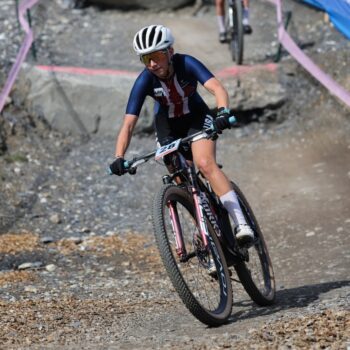
Pan American Mountain Bike Continental Championships
April 16-19, 2026
Aguavista, Itapua, Paraguay

Mountain Bike Cross-Country Eliminator World Championships
April 18, 2026
Barcelona, Spain
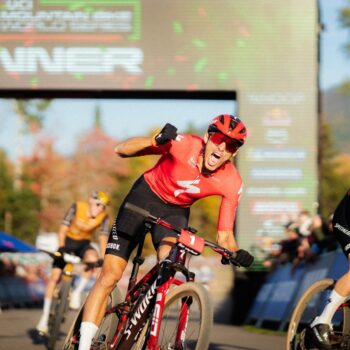
Mountain Bike World Series
2026
For more information, please visit: UCI Mountain Bike World Series
ALL DISCIPLINE Athlete Eligibility, Registration, and Petition Process
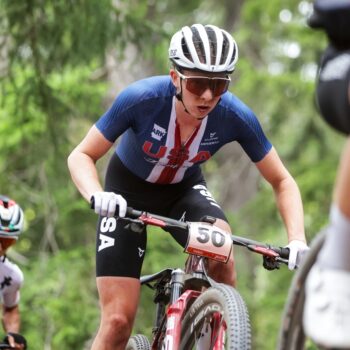
Mountain Bike World Championships
August 26-30, 2026
Val di Sole, Italy
For the most up-to-date information, please visit: UCI MTB World Championships
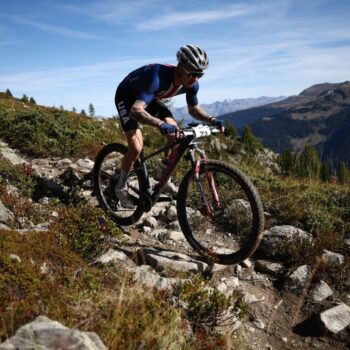
Mountain Bike Cross-Country Marathon World Championships
September 12, 2026
Primiero San Martino di Castrozza, Italy

Pan American Cross-Country Marathon Continental Championships
October 10-11, 2026
Mendoza, Argentina

UCI Junior Series XCO
There are UCI requirements in place in order to compete in the UCI Junior Series for XCO. The link below will explain the UCI Athlete Entry System and Criteria, the Athlete Guiding Principles, and the Event Deadlines
Selection Process
USA Cycling is responsible for selecting the athletes who represent the United States in Protected Competitions through an extensive selection process.
LEARN MORE ABOUT THE ATHLETE EVENT SELECTION PROCESS
Selection Committee
The discipline-specific selection committee provides oversight and accountability of the athlete nomination process. They ensure that the athlete selection procedures are followed and that criteria – both automatic and discretionary - are applied appropriately to nominate athletes. Once confirmed, they approve the athlete nominations.
Each discipline-specific selection committee is composed of three volunteers – a 10 Year Athlete, discipline expert unrelated to USA Cycling, and USA Cycling Discipline Director. Each selection committee includes at least one-third 10 Year Athlete Representatives as required by the USOPC Bylaws. Athlete Representatives on the selection committees are approved by USA Cycling’s Athletes’ Advisory Council.
The Mountain Bike Selection Committee is as follows:
- Howard Grotts - 10 Year Athlete; 2016 Olympian
- Jan Bolland Tanner - 1991 TTT Pan Am Games Champion; 1992 TTT World Champion; US National Cyclocross Champion
- USA Cycling Discipline Director
All members of the Selection Committee and USA Cycling Sport Performance staff participating in a selection must comply with USA Cycling’s Statement of Ethics and Conflict of Interest Policy.
About Mountain Bike
Modern off-road cycling began in the late 1970’s in Northern California and today it serves as a popular form of both recreation and competition. Mountain biking encompasses many different formats including Cross-Country Olympic (XCO), Short Track (XCC), Downhill (DHI), Eliminator (XCE), Marathon (XCM), and E-Bike on the national and international stage. Mountain biking is one of the most fun and liberating forms of bike riding, and is engaging for riders of all ages, backgrounds and abilities.
Cross Country
Also known as XCO for Cross-Country Olympic, this endurance-oriented event is a mass-start competition, divided by category or ability, which typically features 100-150 riders competing over rough terrain including everything from unpaved fire roads to technical singletrack filled with rocks, roots and ruts. A typical elite-level mountain bike race lasts approximately two hours and ranges from 15-30 miles.
A common cross-country mountain bike course includes significant elevation gain and tricky descents. To accommodate the off-road conditions, competitors’ bikes are equipped with wide, knobby tires for better traction and suspension systems to soften the impact of riding over uneven terrain. Bike-handling skills, a keen sense of awareness, and an element of bravery are all vital characteristics of a successful cross-country mountain bike racer.
Short Track
Short Track racing, known internationally as XCC (Cross-Country Circuit), is similar to a criterium or circuit race in road cycling. The discipline was introduced as a more spectator-friendly form of cross-country mountain biking. Traversing rough and often steep terrain with other challenging course features, a Short Track race typically only lasts 20 minutes as competitors start and finish fast.
Marathon
Ultra-endurance racing comes in many forms but is best described as off-road racing that covers longer-than-normal distances and/or lasts for several hours or more. Held on cross-country courses, marathon races are 100 kilometers long or more.
Downhill
One of the many “gravity” styles of racing, downhill is exactly as it sounds. Competitors ride the lift to the top and descend the face of a mountain in an individual race against the clock, only timed on the way down. The rider with the fastest time is declared the winner. Some of mountain biking’s most advanced technology comes from the discipline of downhill racing. Riders compete on bikes that have full suspension systems which allow them to experience a smoother ride as they descend down rocky trails, jumps, and drop-offs.
Dual Slalom
Dual slalom features two riders competing head-to-head against each other in another “gravity style of racing. Similar to the slalom events in downhill ski racing, competitors must weave themselves in and out of gates while descending the face of a hill. A course will typically have two identical runs – red and blue – with the same features, including berms, rollers, and doubles. After the first heat, riders switch lanes and descend the hill a second time. After each rider competes on the red and blue course, his or her times are added together and the rider with the lowest cumulative time advances to the next round, while the other is eliminated. The bracket continues until one person is crowned the winner.
Enduro
Enduro is a mix between a gravity event and an endurance event, linking technical downhill trails with flat and uphill sections typically found at a cross-country race. Enduro races can have anywhere from 4-10 stages spanning over a day or two. In these events, only the downhill sections are timed, but riders are required to pedal to each stage sometimes climbing steep terrain. A rider's stage times are added together to create an overall time. Competitors typically choose bikes that allow for the bike-handling capabilities required of a downhill racer, but also don't prohibit sustained climbing.
Join The Team
The National Team is a representation of the top MTB athletes in the USA. These athletes have risen to the top of the field by progressing through the development pathway provided by USA Cycling. The objective of the mountain bike pathway is to provide talented young athletes with the education and opportunities to compete on the world stage. We accomplish this by supporting top development athletes at skills camps, training camps and international competition. These opportunities allow motivated athletes to develop the necessary skill sets and physiological adaptations required to excel at an international level. Once a rider has achieved a spot on the National Team, they have access to world class education, support, guidance and opportunities to succeed on the professional and Olympic stage.

Get Involved
Join A Club
Compete Locally
- Find an Event
- Interscholastic Racing (NICA National | Colorado | Georgia | Washington)
Prepare & Train
Compete Nationally
Compete Internationally
What is the National Team Designation?
USA Cycling is responsible for supporting and guiding athletes capable of winning Olympic medals, while also identifying, recruiting and developing future Games athletes. Our vision is to be amongst the very best in the world at talent identification, athlete development, management and preparation in all cycling disciplines. The National Team Designation is considered a critical means for achieving this vision. The support provided through the program seeks to offset some of the expenses associated with preparing for and participating in international sport. The program aims to support and assist athletes with the greatest potential to win medals at the Olympic Games and World Championships.
To learn more about the National Team Designation Criteria and Support, click here.
MEET THE TEAM



Pan American Mountain Bike Continental Championships
April 16-19, 2026
Aguavista, Itapua, Paraguay

Mountain Bike Cross-Country Eliminator World Championships
April 18, 2026
Barcelona, Spain

Mountain Bike World Series
2026
For more information, please visit: UCI Mountain Bike World Series
ALL DISCIPLINE Athlete Eligibility, Registration, and Petition Process

Mountain Bike World Championships
August 26-30, 2026
Val di Sole, Italy
For the most up-to-date information, please visit: UCI MTB World Championships

Mountain Bike Cross-Country Marathon World Championships
September 12, 2026
Primiero San Martino di Castrozza, Italy

Pan American Cross-Country Marathon Continental Championships
October 10-11, 2026
Mendoza, Argentina

UCI Junior Series XCO
There are UCI requirements in place in order to compete in the UCI Junior Series for XCO. The link below will explain the UCI Athlete Entry System and Criteria, the Athlete Guiding Principles, and the Event Deadlines
Selection Process
USA Cycling is responsible for selecting the athletes who represent the United States in Protected Competitions through an extensive selection process.
LEARN MORE ABOUT THE ATHLETE EVENT SELECTION PROCESS
Selection Committee
The discipline-specific selection committee provides oversight and accountability of the athlete nomination process. They ensure that the athlete selection procedures are followed and that criteria – both automatic and discretionary - are applied appropriately to nominate athletes. Once confirmed, they approve the athlete nominations.
Each discipline-specific selection committee is composed of three volunteers – a 10 Year Athlete, discipline expert unrelated to USA Cycling, and USA Cycling Discipline Director. Each selection committee includes at least one-third 10 Year Athlete Representatives as required by the USOPC Bylaws. Athlete Representatives on the selection committees are approved by USA Cycling’s Athletes’ Advisory Council.
The Mountain Bike Selection Committee is as follows:
- Howard Grotts - 10 Year Athlete; 2016 Olympian
- Jan Bolland Tanner - 1991 TTT Pan Am Games Champion; 1992 TTT World Champion; US National Cyclocross Champion
- USA Cycling Discipline Director
All members of the Selection Committee and USA Cycling Sport Performance staff participating in a selection must comply with USA Cycling’s Statement of Ethics and Conflict of Interest Policy.

Alec
Pasqualina
Background
Alec joined USA Cycling in 2021 to spearhead the organization’s redesigned development program across all cycling disciplines. A former professional mountain bike and cyclocross racer, he brings firsthand experience from USA Cycling’s previous development initiatives, providing invaluable insight into athlete progression.
Beyond his work at USA Cycling, Alec has coached athletes across multiple disciplines while also spending nearly three years at TrainingPeaks, where he played a key role in product development, data analysis, coaching education, and customer engagement.
In early 2024, Alec stepped into the role of Director of Mountain Bike, leading the National Team’s charge toward the Paris 2024 Olympic Games.
Originally from Danville, Calif., Alec earned degrees in Communication Studies, Political Science, and Entrepreneurial Leadership from Gonzaga University in Spokane, Wash. He now resides in Bentonville, Arkansas - home of the U.S. Mountain Bike National Team.
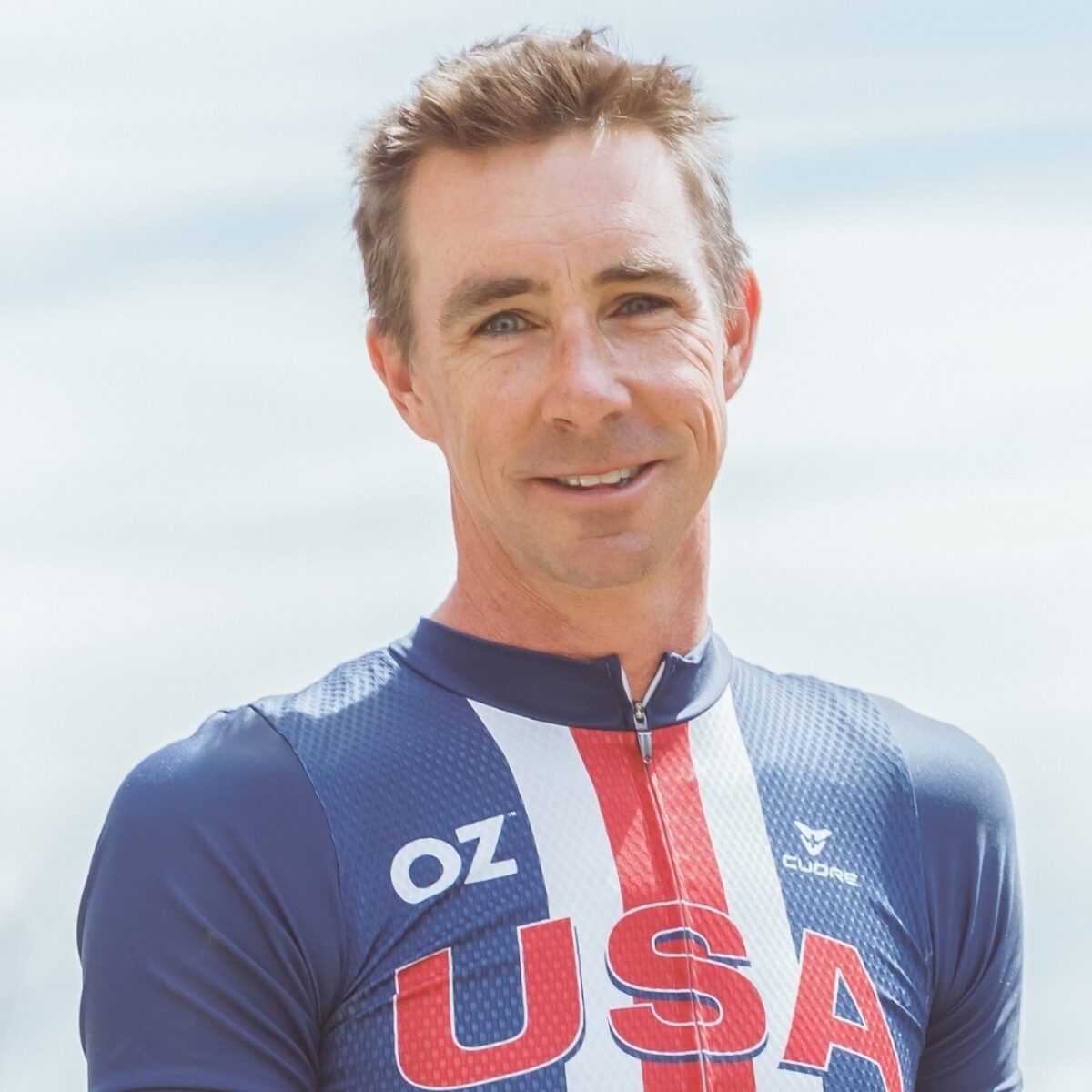
Background
Todd Wells, a three-time Olympian and a 15-time national champion across various disciplines, initially from New York, relocated to Durango, CO to chase his dream of becoming a professional mountain bike racer in the mid-90s. His mountain biking journey commenced at Fort Lewis College and continued at the University of Arizona where he earned a degree in Management Information Systems. After a stint at IBM at the beginning of his career post-cycling hiatus, he rekindled his love for racing. In 2018, he transitioned from professional racing to coaching, co-directing the Iron Horse Bicycle Classic and his current full time job as a mortgage broker. Embracing new challenges and adventures, Todd occasionally participates in races and shares the joy of cycling with his son, Cooper. Eagerly anticipating collaboration with the National team, his goal is to make valuable contributions to the sport and the organization that have brought him immense happiness.

Background
Jill Kintner is a renowned professional mountain bike racer with an impressive career spanning multiple disciplines. Known for her dominant presence in gravity racing, Kintner is a former 3x world champion, BMX Olympic medalist, and one of the most celebrated athletes in the Crankworx series. Her accolades include numerous national titles in 6 disciplines and a reputation as a trailblazer for women in the sport. With a career marked by both technical prowess and a fierce competitive spirit, Kintner continues to inspire riders around the world through her racing and coaching.

Jim
Miller
Background
A successful professional cyclist in his own right, Jim coached several cyclists on the side and eventually retired from racing in 1999 to focus solely on his flourishing coaching career. After developing several notable cyclists, he originally came to USA Cycling to run the women’s road program in 2002. After earning Coach of the Year distinctions from the U.S. Olympic & Paralympic Committee in 2003 & 2004, Jim was promoted to director of endurance programs, overseeing the development of American junior, U23, and women endurance athletes in road and track cycling. After making significant strides toward the USA Cycling National Development Program’s goal of developing the next generation of American cyclists, he was named Vice President of Athletics in 2010. In 2017, Jim left USA Cycling to become the Vice President of Business Development for Training Peaks. Unable to resist the Olympic call, he returned to USA Cycling in 2020 as the Chief of Sport Performance. He has earned the International Olympic Committee’s highest honor for coaches, the Order of Ikkos, three times, all for coaching 3-time Olympic Champion Kristen Armstrong to victory.





